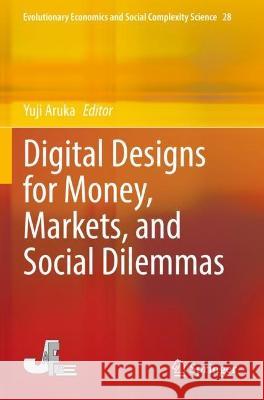Digital Designs for Money, Markets, and Social Dilemmas » książka
topmenu
Digital Designs for Money, Markets, and Social Dilemmas
ISBN-13: 9789811909399 / Angielski / Miękka / 2023
Digital Designs for Money, Markets, and Social Dilemmas
ISBN-13: 9789811909399 / Angielski / Miękka / 2023
cena 644,07
(netto: 613,40 VAT: 5%)
Najniższa cena z 30 dni: 616,85
(netto: 613,40 VAT: 5%)
Najniższa cena z 30 dni: 616,85
Termin realizacji zamówienia:
ok. 16-18 dni roboczych.
ok. 16-18 dni roboczych.
Darmowa dostawa!
An innovative feature of this book is its econocentric structure, focusing on digital designs. From the outset, econocentrism is assumed to be a core engine of capitalism, like money. The new coronavirus pandemic has changed lifestyles worldwide, which are unlikely ever to return in their original form. This great transformation will change the nature of the socio-economic system itself and will be centered on digital designs. At present, money already is beginning to undergo a major revolution in that sense. Many books dealing with digital designs and innovations have been published, but few if any of them focus on monetary and analytical methods in the way that this present volume does.
The book then contains 6 parts: Evolution of money and thinking complexities in the AI era; Goods market and the future of labor market; Computational social approaches to social dilemmas, smart city, cryptocurrencies; Artificial market experiments; The randomness and high frequencies in financial data; Other trading strategy issues and the effects of AI usage. These issues may be indispensable subjects in our age. Study these subject, and have a step forward to the future society!











